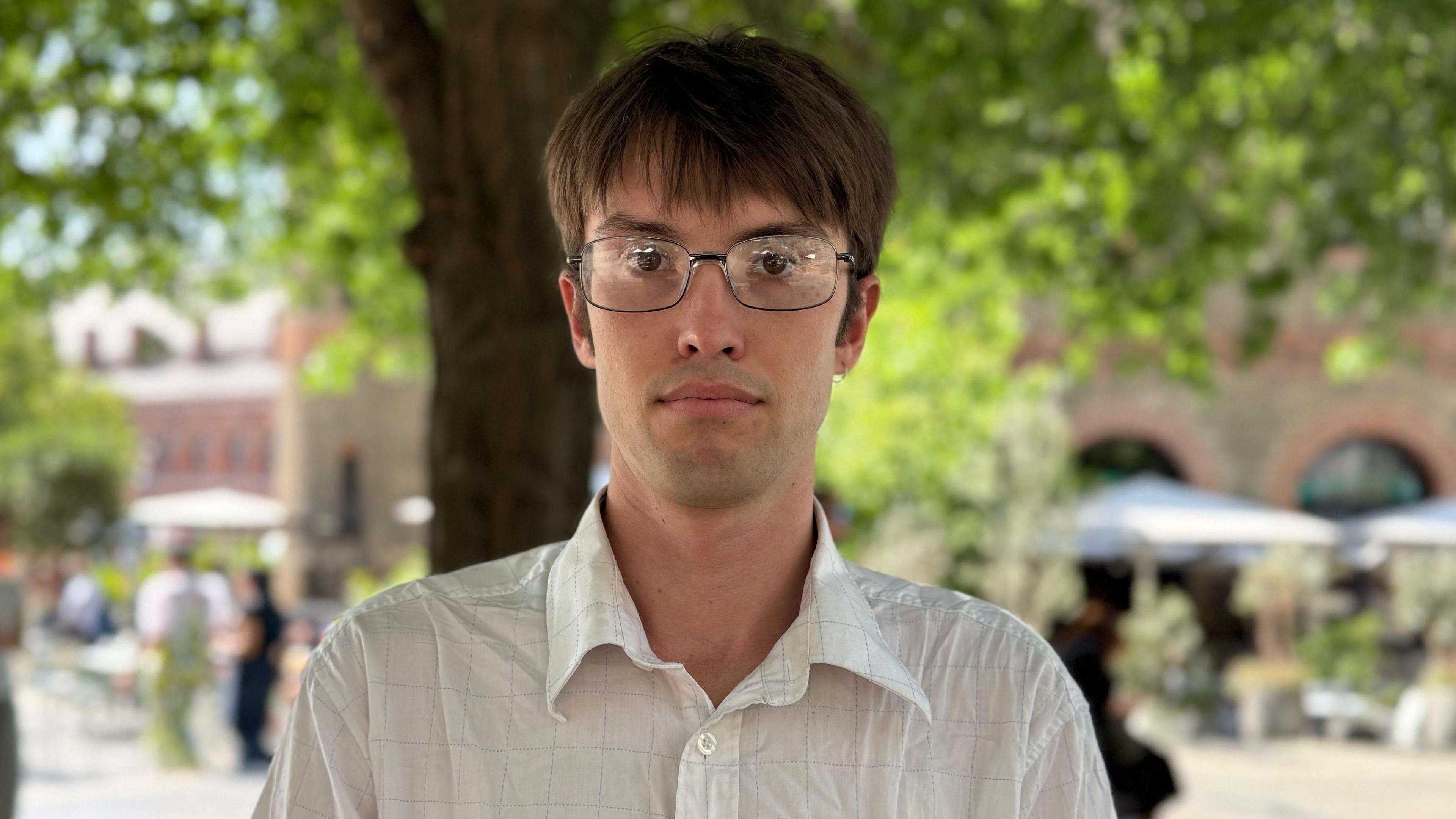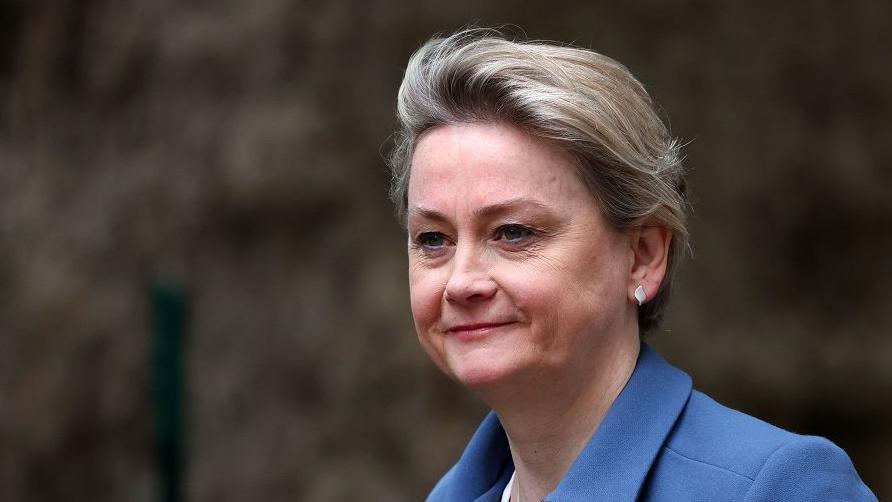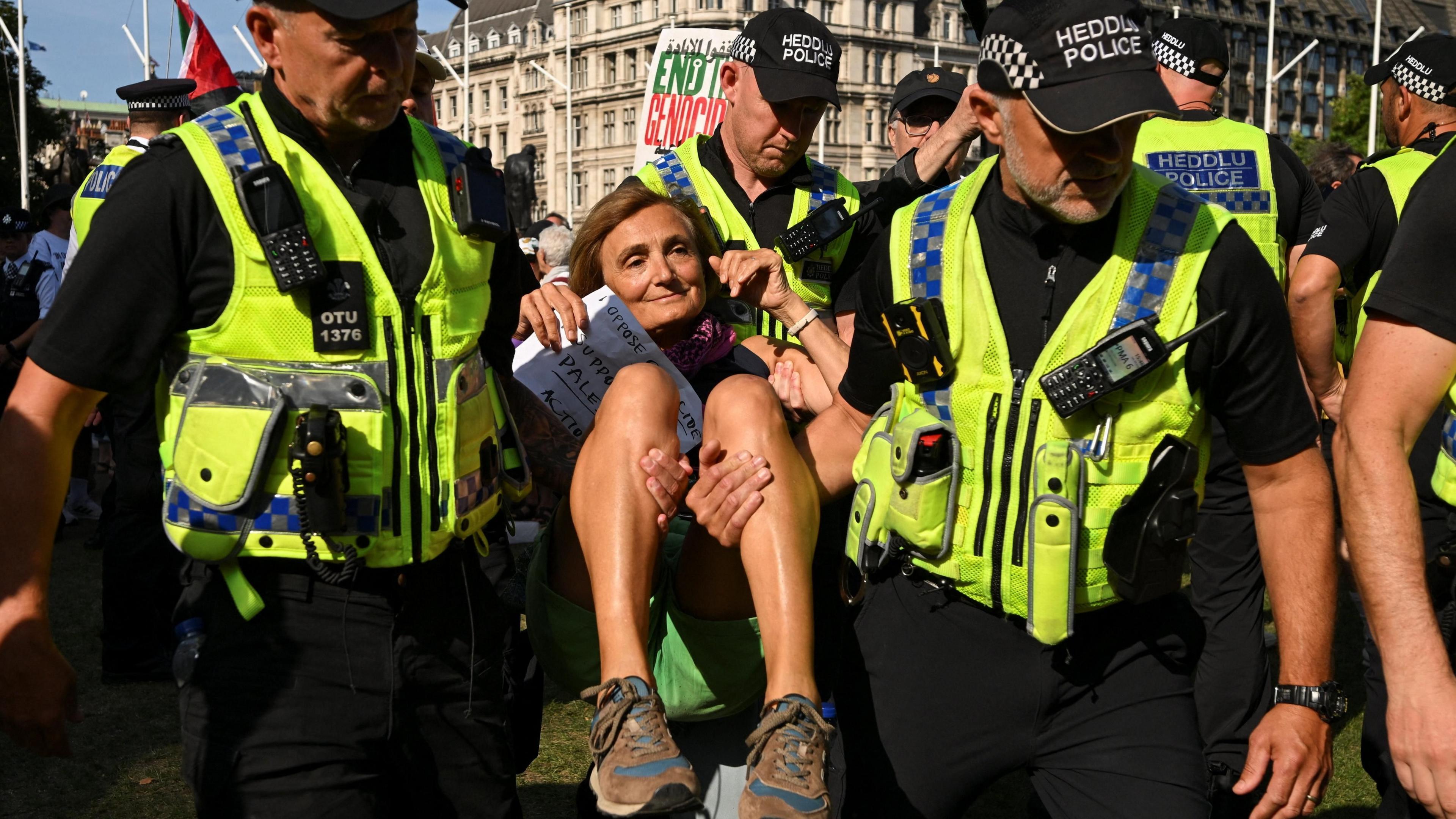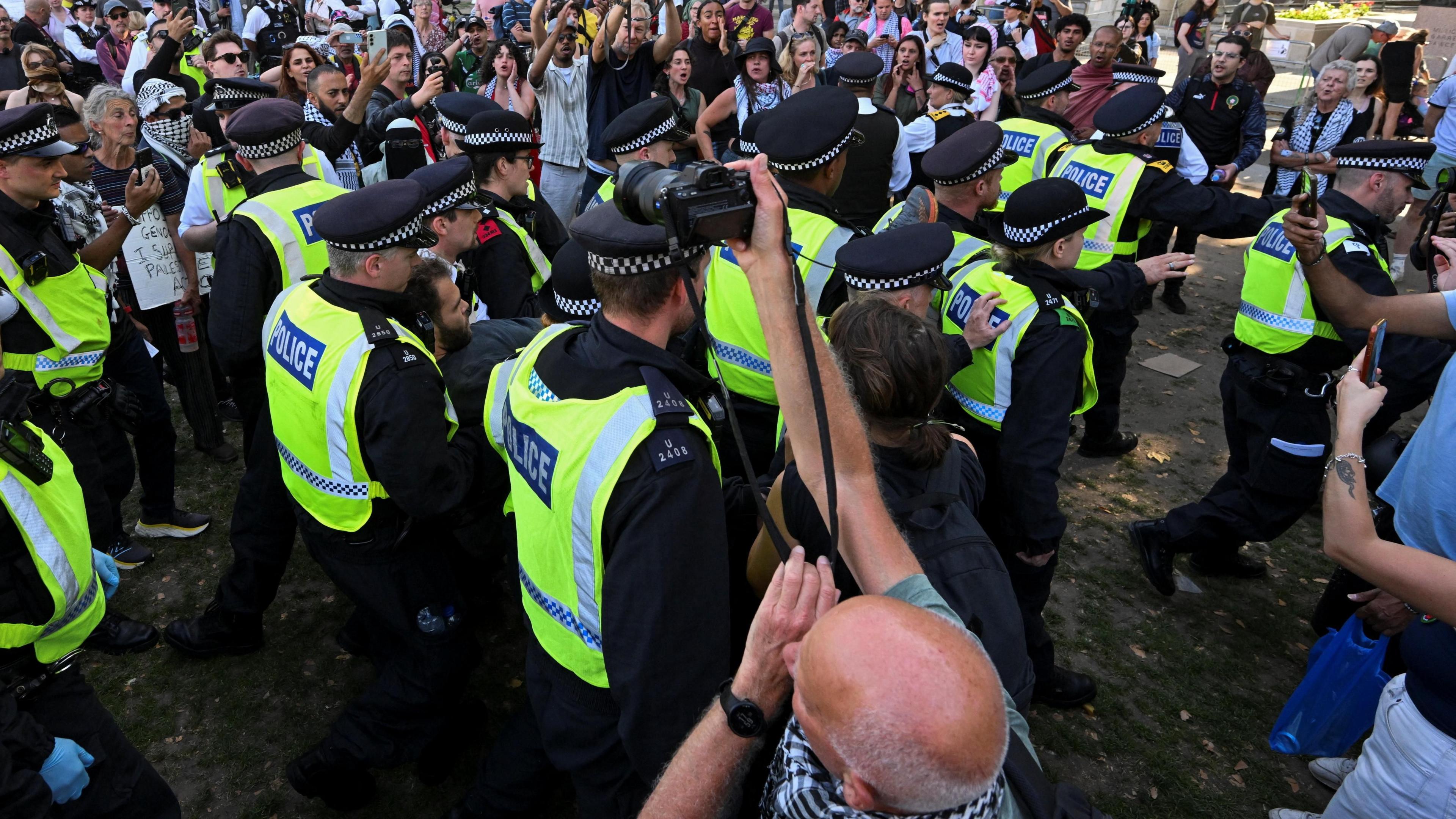'Palestine Action protest could ruin my career but I felt I had to do it'

Paddy Friend was one of hundreds of people arrested on suspicion of breaking terrorism laws following a sit-in at Parliament Square
- Published
"I felt I had to do this," said 25-year-old law student Paddy Friend, who was one of hundreds of people arrested for expressing their support for banned group Palestine Action (PAG).
"Absolutely I knew that I was highly likely to be arrested. This could have massive consequences for my career."
Some 521 people were arrested on suspicion of breaking terrorism laws following a sit-in protest in Parliament Square on 9 August.
Home secretary Yvette Cooper previously said that some supporters of PAG "don't know the full nature" of the group, which was proscribed as a terrorist organisation in the UK in July.
Met Police commissioner Sir Mark Rowley said officers and the Crown Prosecution Service had worked quickly "to overcome misguided attempts to overwhelm the justice system", and were processing the case files of those arrested.
He added: "We are able to investigate and quickly charge significant numbers of people each week if people want the potentially life-changing consequences of a terrorist conviction."
The proscription made membership of or support for Palestine Action a criminal offence, punishable by up to 14 years in prison and happened after the group claimed responsibility for an estimated £7m of damage to jets at RAF Brize Norton.
Earlier this year, the group won permission to challenge the ban and their case will be heard in the High Court in November.
During the Westminster sit-in, members of the group held placards reading "I oppose genocide, I support Palestine Action".
Mr Friend said: "That wording was chosen very carefully, to unashamedly break Yvette Cooper's proscription order, because in my view it is completely illegitimate, and it's quite frankly a ludicrous bit of law."
He added: "This isn't about breaking all laws that we find ludicrous, this is one example of a particularly egregious, anti-democratic law.
"There is a long tradition of people breaking unjust laws and I see myself, and I see those people who I was arrested with, as part of that tradition."
On Friday, the Liberal Democrats called for a review of the terrorism law used to arrest PAG's supporters, and warned it risked having a "chilling effect" on free speech.
Cooper said that Palestine Action was "not a non-violent organisation" when defending the organisation's proscription, adding that it was more than "a regular protest group known for occasional stunts".
The home secretary said PAG had been "involved in violent attacks" and "major criminal damage against national security infrastructure".
She told the BBC: "There may be people who are objecting to proscription who don't know the full nature of this organisation, because of court restrictions on reporting while serious prosecutions are under way."
The Met Police said PAG was also linked to allegations of a serious assault on staff and police officers at a business premises in South Gloucestershire.
'Red line for democracy'
Following the sit-in, the Met Police said the average age of those arrested was 54 and some 112 of them were more than 70 years old.
"The police had set up this quite bizarre system, sort of fake police desks on the street, to process the hundreds of people that got arrested that day," said Mr Friend, who was street bailed after his arrest.
Asked by BBC London if he was trying to get arrested, Mr Friend said: "I wasn't trying to get arrested, but let me explain the reasons why I did this.
"For the last two years, we've been watching a genocide unfold in Gaza."
BBC London put to Mr Friend that an interim report from the International Court of Justice had not proven a genocide in Gaza and that Israel had strongly rejected the accusations of genocide.
Mr Friend said: "I feel fully confident from what I see every day, broadcast through my phone, from what we see in the news, from what international experts say, a genocide is happening.
"This is a red line for democracy and freedom of speech in this country - I felt I had to do this."
Reflecting on the impact of the arrest on his future career, he said: "There are various hoops one needs to jump through to become a solicitor or a barrister. I imagine a terrorism conviction would make that very difficult."
Solicitor Ali Parker said the number of people who had been arrested under the Terrorism Act for supporting Palestine Action was "absolutely unprecedented".
"Normally when an organisation is proscribed, you can understand that even if there were vocal advocates publicly supporting it, they quickly go to ground - they're all too aware of the consequences of being arrested.
"However, in this instance, you have hundreds of people turning up in public spaces loudly and proudly expressing their support. That's unprecedented.
"The police don't normally walk into Westminster Square and find 500 people holding up placards and signs almost waiting to be arrested. So these are uncharted waters."
The Metropolitan Police Federation said the demand for policing protests in London was "relentless" and "not sustainable".
"Our colleagues have and continue to lose time with their families, friends and loved ones because they have been pulled into London to police protests," a spokesperson said.
"We must remember there are no "extra" police officers. Officers are emotionally and physically exhausted. The demand is relentless. And it's not sustainable."
City Hall said it would not comment on the protests and it was an operational policing matter.
Listen to the best of BBC Radio London on Sounds and follow BBC London on Facebook, external, X, external and Instagram, external. Send your story ideas to hello.bbclondon@bbc.co.uk, external
Related topics
- Published17 August

- Published14 August

- Published12 August
